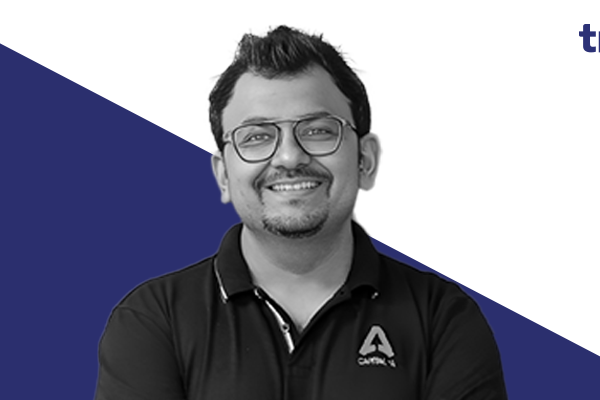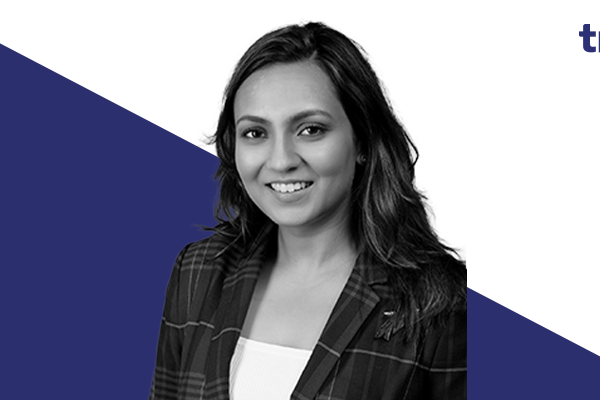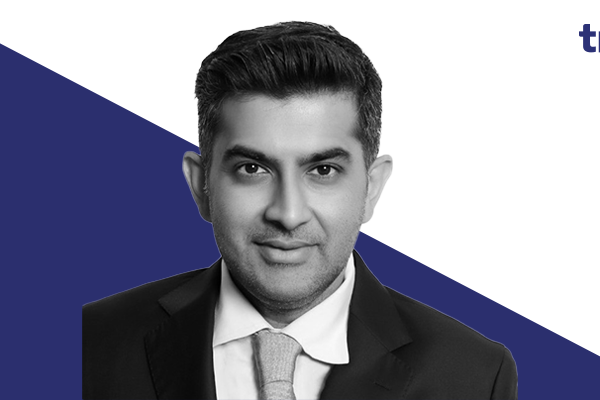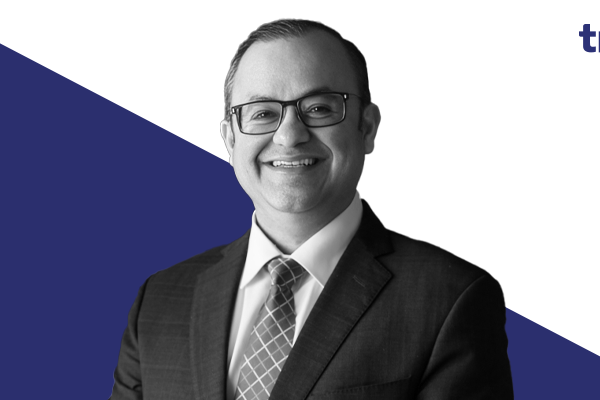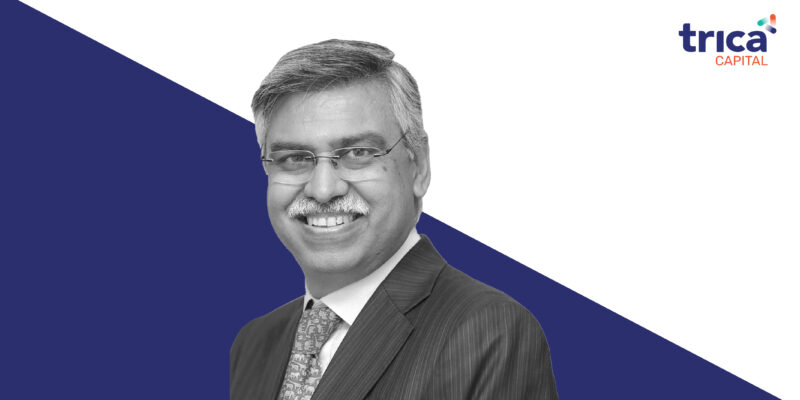
Find out Sunil Kant Munjal’s one question for startup founders here.
Sunil Kant Munjal is one of the founder promoters of the Hero Group, India’s premier automotive manufacturing group that has evolved from being the world’s largest bicycle-maker to the largest two-wheeler maker. He is now the Chairman ofHero Enterprise, with interests in insurance distribution, steel-making, real estate, corporate training and an active Investment Office. The Investment Office has made strategic investments in several areas ranging from e-commerce to hospitality. Mr. Munjal also supports startups in digital learning, community transportation, healthcare, women empowerment, education, financial services, consumer-facing businesses, etc. The Investment Office runs a portfolio of structured debt, public market investments and private equity investments in India and global markets.
Let us begin by very simply understanding why you angel invest?
To be honest we do not do a lot of startup investments now, at least not at the pace that we were doing earlier. At the time that we started investing in startups there was actually very low access to risk capital, almost none actually. My belief was that in a country like India, with so many young people with such amazing ideas it is a shame that we are not able to facilitate them taking ideas to reality. So we promoted a few initiatives for angel investments like seeding the Indian Angel Network and once there were enough of them around, we moved up to the next level, doing venture level funding. And then once they were enough domestic venture funds seeded we moved up to slightly larger investments — the single ticket size grew. We started looking at steady state businesses that were seeking either growth capital, or an acquisition or some major restructuring. But the very point of starting anything at all was to encourage and help startups as a culture and strengthen entrepreneurship in the nation. Worldwide, a lot of the energy in the economy comes from startups, some of the best ideas worldwide are actually coming from startups, even for the use of the large established companies, and we saw no reason why India should be left behind. So that was actually the reason for us getting into the private markets.
When we look at private markets, there are three primary things investors use to evaluate startups — team, innovativeness of the product and the market size. What weightage do you give each of these?
Most investors will have a financial criteria they look at as well. But financial modelling is frankly exactly what it says — it’s just a model. It doesn’t quite mean anything and in almost all cases, reality tends to overtake these plans. So, what we look at is the passion of the founders; because passion has a magic quality, which allows people to do much more — to find solutions when things don’t work out.
The second thing we look at is, have any of them dealt with failures and have they actually learned from failures. Next, we look at the business and ascertain if they are providing a social good or if there is a definite positive social impact — for us this is a necessary ingredient to support any business.
We don’t just write a cheque and walk away, we actively support and mentor founders, we help them no matter what the area of support is — technology, branding, distribution and marketing. Having run businesses of all sizes, I guess we have a little bit of an advantage of hindsight of not just knowing what works, but in most cases and more importantly, what does not.
So ultimately, it is about the team and execution and not chasing valuations… Yes, I think too many entities when they start out are focused on valuation. And I think that’s the wrong end of the stick. They have to be able to build a good business — whether it is finding the right kind of customers or creating a need for something that does not exist right now – and doing this efficiently. I think valuation should be a function of this, not the main driver of business. If you run a good business, profit and value will come, it’s a natural fallout. So one of the things that we have done, by the way, is that we have actively not supported businesses, which are just based on pure valuation, or on growth at any cost. These two business models we don’t engage with at all.
Valuation is an outcome and not the input. But let me ask you how you arrive at some of the answers. Is there a question that you double down on when you are evaluating a business idea for investment?
The one thing I like to ask any founder is: do you know who and where your customer is? Because very often, you have built a fantastic business model based on something which is in your head. You think this is a great idea, without actually testing it out. Is there an actual customer out there who’s going to consume this and pay for it? This applies to both direct consumer business and B2B businesses. This granularity is unfortunately always missed out.
Let us just zoom out a bit. How do you arrive at asset allocation as a family office?
Asset allocation is going to be unique to each family depending on the stage of development of the family office. It also depends on what the needs are and what is the surplus that can be allocated, either on a one-time or regular basis. Broadly, it’s a three way split — 1/3 where you can take high risk for high returns, 1/3, which you want to keep quite safe and 1/3, which is middle of the road. Of course, what we do is much finer — identify many micro categories and allocations, because our investments are across the board — all the way from RBI bonds to startups.
In the private market bucket — how do you split between funds and direct startup investments?
We have actively supported several funds but like many family offices are saying globally, we want to take hold of our own destiny. A recent study has shown that 48% of investments from family offices are now becoming direct investments and another showed that number to be as high as 62%. Essentially the thinking is — I will make the investment, I will build the expertise. And this is natural because principals in these family offices have run businesses, they have the organisational capability and the ability to understand risk already exists.
Remember, when we were investing in startups it was quite uncommon and we literally had the pick of the crop. But we have always been picky — we get lots of offers every month but we take our time. Ours is patient capital — we’re not answerable to anybody else to give them a return in two years or seven years and so we are able to take the decisions, which are just the right decisions, regardless of how long it’s going to take. We also have a very strict criteria for selection and approval. We try to make it objective and disciplined as possible before we lay the final subjectivity on top of that.
The other area to which family offices also allocate capital is philanthropy and here the lens can be varied — promoting the family’s culture, nation building, environment and ecology and so on. More and more family offices are therefore investing in companies and businesses which address these issues or actually working directly in these areas. It’s no longer only about funds, there is an added layer that has come in, especially in the last five years.
Could you elaborate on this a little more?
It is now being seen as a responsibility, or a new contract between business and society and business and government. There is a new understanding that if you’re not playing a bigger role beyond your business, then you’re falling short of the expectations of you. So in many cases, the family offices have started to play an active part of that role, while the operating companies play some of it, but more of it has shifted to family offices because here you can allocate serious time, resources and talent.
Would it be fair to say that there is a thin line between philanthropy and value investing? Is there no expectation of returns?
We have invested in some impact investment funds but we actively support other initiatives where there is no return expected. But those foundations, those charities, those institutions, have to become self-sustaining at some time. Especially the ones we promote and run ourselves – to all of them the brief is very clear that we will fund them when there’s large capex required, or there’s a problem but they have to go out and become self-sustaining over a period of time.
Is there any advice that you would like to give some of our largest companies that are heading for an IPO? What are the top three things that will come to your mind?
The first one is discipline in process. Second, is discipline in reporting. Because these companies are so busy building their business, they sometimes forget to have a formal reporting system to talk about what’s going on. And third, some of them actually try to hide the negative stuff, which is very dangerous. So that’s the one discipline that the listing will bring that you have no choice but to share everything. Having said that, our regulations are so stiff for listing. And it’s not just in India, the listing in London, for example, is even tougher, if you go to New York Stock Exchange, it gets even tougher. All of them have pretty stiff requirements of how you run the board — the governance models, the distinction between governance and management. This is something one should think about very carefully before opting for the listing, because it does tend to change the way you will run your business.
What amazes you when you see the startups of today and what disappoints you?
What amazes me is the number of brilliant new ideas each time you walk into a meeting. What certainly scares me and sometimes disappoints me is this mad craze for the valuation that has now crept into company after company after company. And the other one, is the unpreparedness for failure — not being ready with a safety net or a second option to change course. In some cases the company becomes so rigid that it would rather break than shift or bend.



